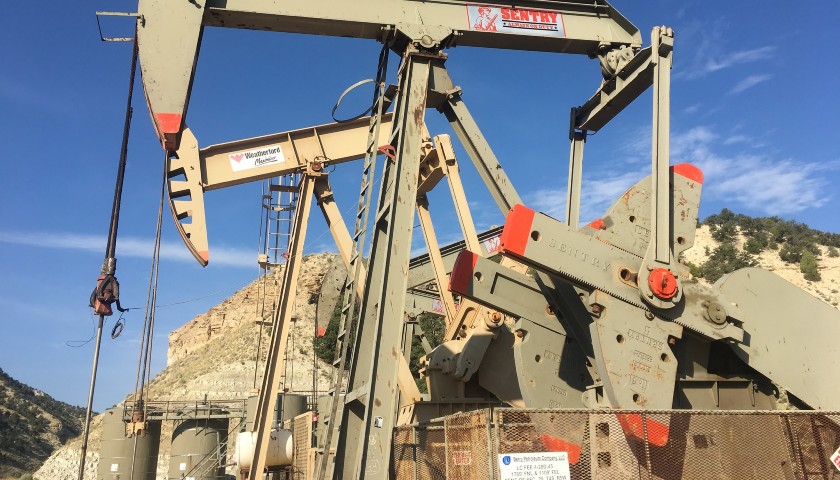by Bethany Blankley
Over the next two decades, oil and gas production is projected to account for 68 percent of energy consumption in the U.S. and will play a key role in the energy transition to a low carbon future, according to a new report published by the U.S. Department of Energy.
Natural gas is increasingly powering plants to produce electricity, but oil and natural gas are revitalizing the U.S. petrochemical industry, growing the liquefied natural gas industry, and boosting high-tech materials, the report states.
“Oil and natural gas provide more than two-thirds of the energy Americans consume daily,” Deputy Energy Secretary Mark Menezes said when the department released the 37-page report earlier this month in Albuquerque, New Mexico.
“In addition to meeting our energy needs, these fossil fuel resources are integral to our standard of living. This report delves into the importance of these resources, the five key technologies that have supported the industry’s advancement, the opportunities for future domestic energy growth, and more,” Menezeas said.
The DOE says it will work with the industry, academia, state agencies, the private sector, and non-government organizations “to drive innovation forward, to underpin U.S. economic growth and energy security.”
Innovation in the industry includes expanding resource development in the Bakken Shale, the Permian Basin, and the Eagle Ford Shale, while improving oil and gas safety and mitigating environmental problems, the report notes.
In New Mexico, tax revenue from the oil and gas industry contributes to 39 percent of the state’s budget – generating $16.6 billion in annual economic activity, employing more than 134,000 people, and funding more than $1.4 billion for the state’s public schools.
Ryan Flynn, executive director of the New Mexico Oil and Gas Association, explains that any federal ban on oil and gas leasing, fracking or on federal permitting would be “devastating for New Mexico.” He said in response to the Biden/Harris plan to ban fracking and transition away from oil and gas development that, “Any proposal restricting oil and gas development on federal lands would only result in the elimination of thousands of jobs, massive cuts in support for our public schools, and a greater reliance on foreign energy imports.”
The industry is committed to reducing emissions and protecting the environment, he says, “but we cannot slap millions of Americans with proposals that destroy jobs and ravage communities. Any serious energy proposal must recognize the fact that oil and gas will continue to play a major role in meeting our basic daily energy needs well into the future.”
On July 31, 2019, during the second Democratic Party presidential primary debate, when asked if there would be “any place for fossil fuels, including coal and fracking, in a Biden administration,” Biden replied to CNN’s Dana Bash, “No, we would — we would work it out. We would make sure it’s eliminated and no more subsidies, for either one of those, either — any fossil fuel.”
Last week Biden repeated his position in the presidential debate stating his administration would “transition away from the oil industry, yes.”
A recent analysis by NMOGA and the American Petroleum Institute projects that if oil and gas bans were implemented in New Mexico in 2021, more than 62,000 jobs would be lost by 2022.
“For our state, that means over 100,000 working families will be out of a job and nearly 40 percent of our entire state budget would disappear,” Larry Behrens, Western Director for Power The Future, says. “The latest rankings place New Mexico with the eighth-highest unemployment in the country, a standing that will be more permanent if Joe Biden decides nearly 15 percent of our state’s workforce needs to ‘transition out of their job to poverty.’”
– – –
Bethany Blankley is a contributor to The Center Square.
Photo “Oil Drilling” by Alan Levine.





